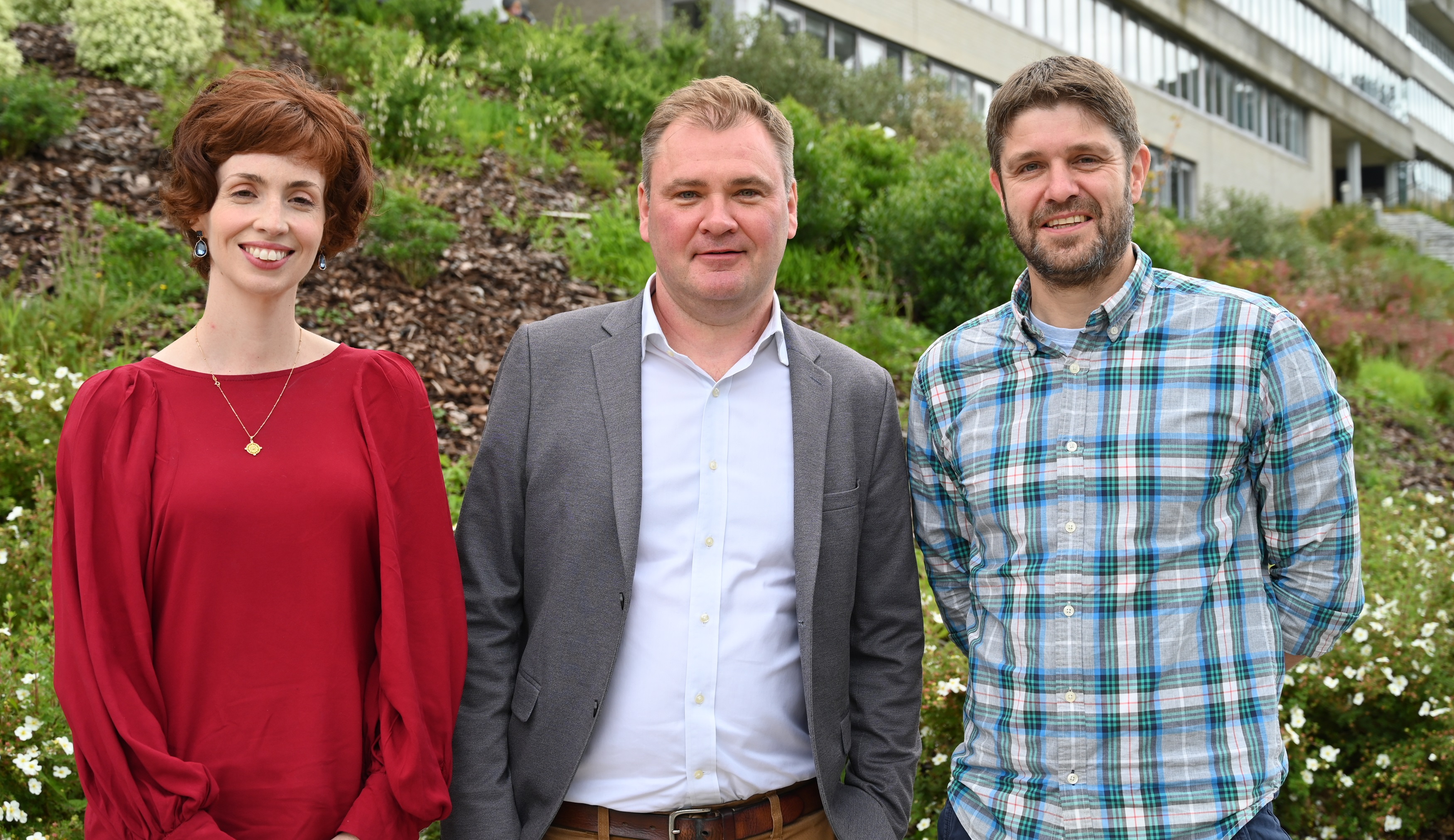New research on how language helps integrate newcomers

Left to right: Dr Gwennan Higham from Swansea University, Professor Leigh Oakes from Queen Mary University of London and Dr Huw Lewis from Aberystwyth University.
13 August 2024
In an era of increased migration, what are the best ways of integrating newcomers into the language of their host country?
It’s a question which is being addressed as part of an innovative study funded by a prestigious Leverhulme Trust research project grant.
A team of researchers will start working on the project in September 2024, led by Professor Leigh Oakes from Queen Mary University London (QMUL) and including Dr Huw Lewis from the Department of International Politics at Aberystwyth University as well as language policy experts based at Swansea University and the Max Planck Institute in Göttingen, Germany.
Over the course of three years, they will examine policies, experiences and perspectives on linguistic integration in Wales, England and Quebec.
Professor Leigh Oakes from the School of Languages, Linguistics and Film at QMUL said:
“In an age of increased immigration, learning the language of the host community is commonly portrayed as the key to successful integration. However, little attention has been devoted to the practical and moral implications of linguistic integration for newcomers and their host societies, including in settings where more than one language can serve as a language of integration.
“By employing an innovative interdisciplinary approach, this project will address significant gaps in scholarship to provide the first systemic study of the ethics of linguistic integration in democratic societies.”
Dr Huw Lewis from Aberystwyth University said:
“Researchers at the Department of International Politics at Aberystwyth have a strong track record of contributing to academic and policy debates regarding language policy - both here in Wales and internationally - and we look forward to bringing this expertise to this Leverhulme research project.
“Comparing policies and experiences relating to linguistic integration in England and Wales will be particularly insightful considering the majority versus minority language positions of English and Welsh, and the recent efforts of the Welsh Government to use its powers to develop an approach to linguistic integration determinedly distinct from that pursued by the UK Government in England.
“We hope that lessons learnt through our research can be analysed and applied elsewhere. For example, to what extent should newcomers be expected to learn their host country’s language or languages, what are the ethical considerations of linguistic integration, and what are the practical implications for education, healthcare and other services in terms of the linguistic needs of newcomers?”
Two PhD students will also be appointed to work on the project, with one based at Aberystwyth University and the other at Queen Mary University London.
